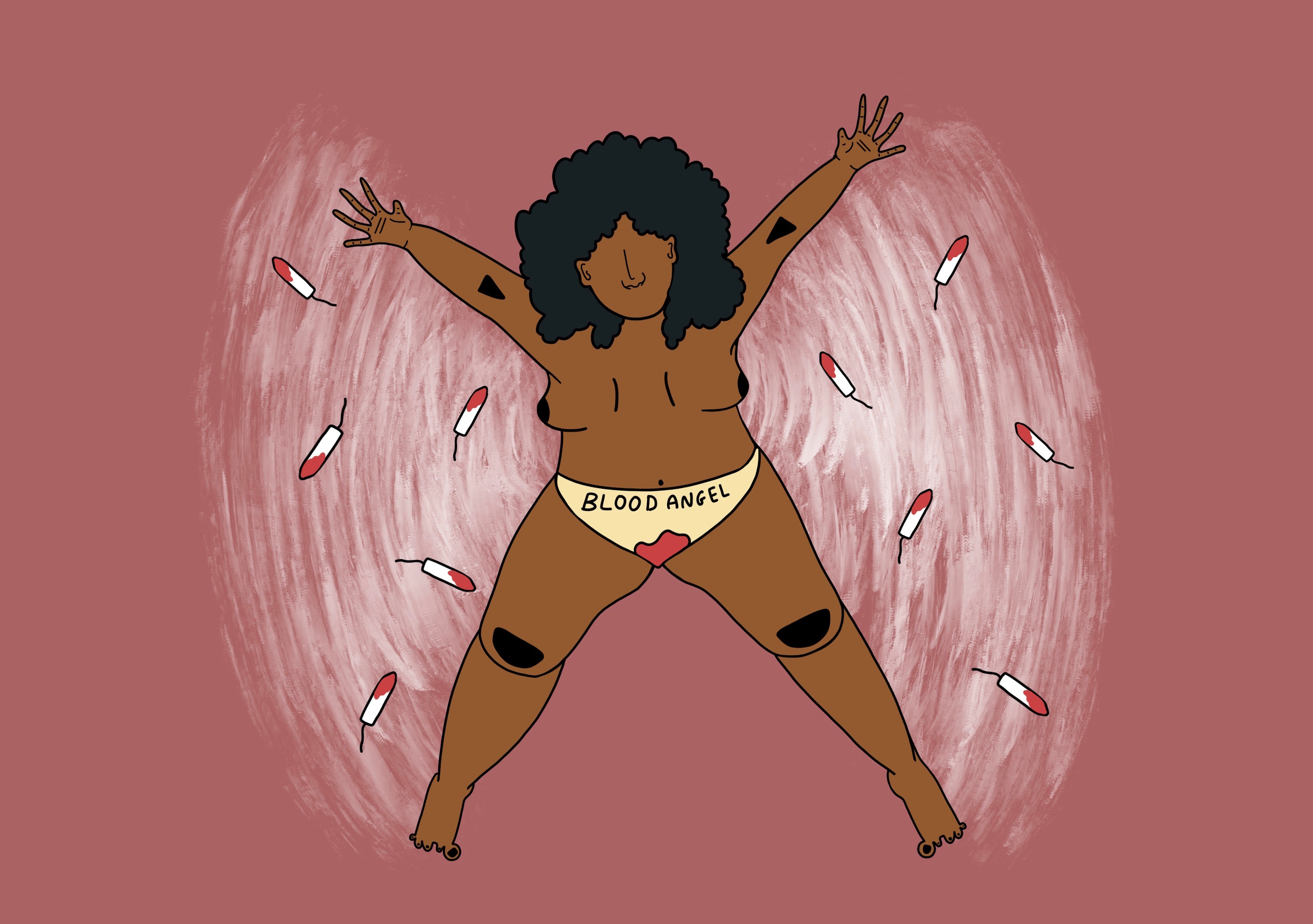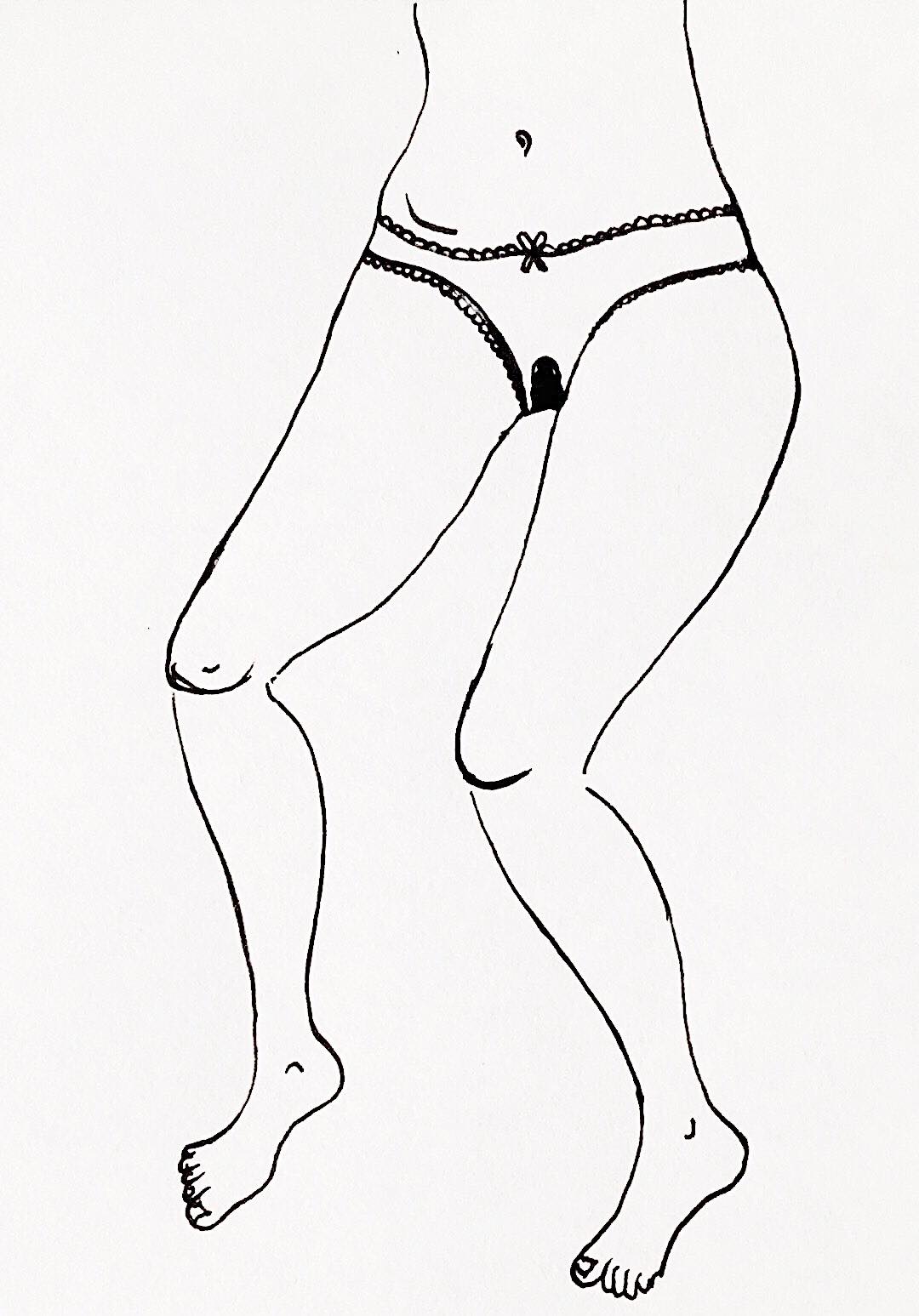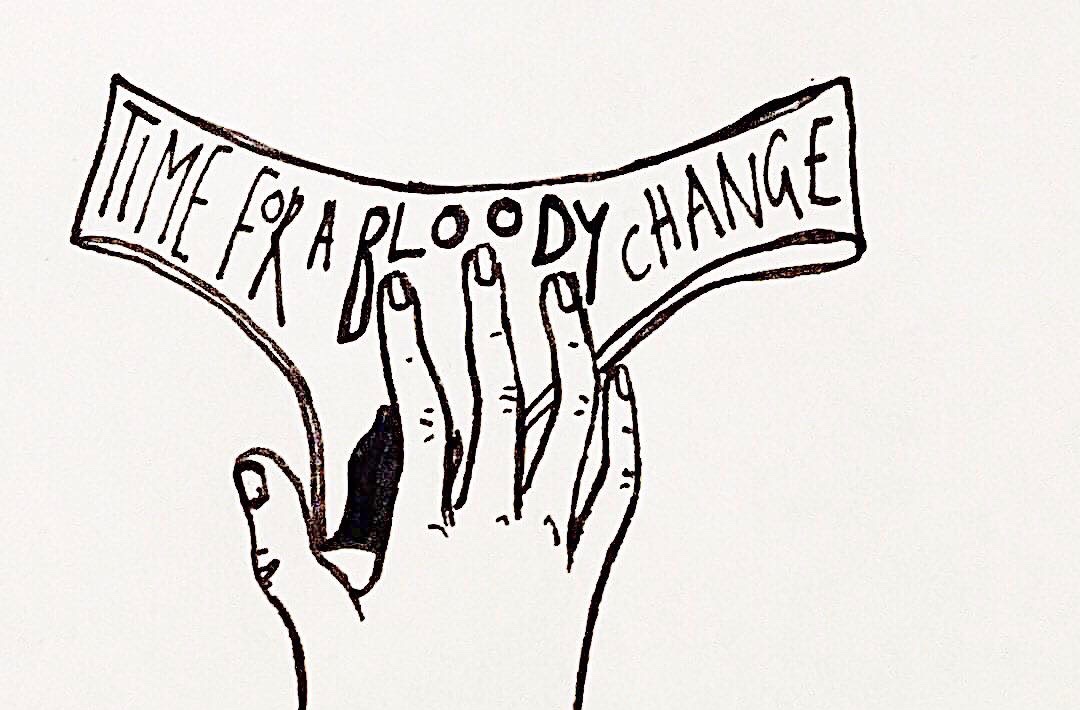It's time for a bloody change
Let's talk about periods
By Amie Tyrer

Illustration by Lauren Drinkwater
Periods: one of the many socio-cultural taboos that remains unbroken. But why? The average woman will have around 480 menstrual cycles in her lifetime, yet a profound stigma remains, urging womxn and girls to bleed in private. For much of my teenage and adult life periods have been associated with shame. They are something not to be spoken about, to be hidden away, to be dealt with privately.
What this stigmatism fundamentally comes down to is that women do not and should not be seen to be excreting anything from our bodies. Ladies don't sweat, ladies shouldn't burp and they certainly shouldn't be seen to bleed out of their vagina (god forbid)!!! We are taught from our earliest years that if we are going to enact any of these natural bodily functions, we must do so with concealment. Hold that bleach till later gal, lather up the deodorant, stuff that tampon up your sleeve and quietly slip away to the bathroom to do your dirty business in private.

Illustration by Elsa Pearson
It's time for a bloody change!
The impact of this indoctrinated shame is really quite profound. As females, we are neglecting our body’s most basic desire to be cared for and this often means that we don’t take the time to appreciate how much our bodies are going through when we menstruate. We want it to be over as quickly and discreetly as possible, so we rarely stop for a moment to tune in to the fact that our hormones are disturbed. The menstrual cycle is so much more than just a few days of pain and blood. Our periods exist in a roughly 4-week menstrual cycle which means throughout every day of the month our brain, ovaries and uterus work in synchronicity to produce three essential hormones - estrogen, testosterone and progesterone - which rise and fall in a specific pattern throughout the month. The rise and fall of these hormones and the areas they are directed to can have an acute effect on women in myriad ways. Hormone levels may affect your mood, energy levels, sleep quality, food cravings, skin breakouts and even your spending habits and love life.
Understanding your menstrual cycle is fundamentally important as ignoring these instinctive corporal reactions can lead to a misunderstanding of your own body. One Australian study, found that only 13% of the women they surveyed knew when they were fertile during their menstrual cycles. The confusion this fosters can have an impact on our mental wellbeing and begin to affect our daily routines. Considering we aren't really taught anything about periods in sex education or even in biology, it is not surprising that the majority of women just don’t have this basic understanding of their own body works. It is absolutely crucial that we begin to normalise the discussion around menstruation - It is a healthy, natural and positive part of being a woman and we need to recognise this.
However, it feels as though the tides are shifting as the media is beginning to zoom it’s ever harsh lens onto female menstruation. This year a short documentary titled Period. End of Sentence, won an Oscar … a film about periods won an Oscar! The UK government announced that all school’s will provide free sanitary products to menstruating pupils across the country and a campaign called #BloodNormal was launched by Body Form which aims to ignite the conversation around the normalisation of periods. It features a short film that seeks to shift the cultural zeitgeist around period shaming by portraying honest and real depictions of menstruating. Scenes showing school children passing pads across the classroom, a young girl crying shifting into laughter, a man buying pads from the store and a woman asking for a sanitary towel across the dining room table send the strong visual message that periods are normal.
The barriers efficiently built up by society are beginning to crumble. But there is still work to be done! It’s 2019 and we are just started to understand that period products are not a luxury but a necessity and that as women we shouldn’t have to be fighting for free tampons but being showered in them. We shouldn’t be made to feel dirty when we bleed but healthy. Period shaming stems back to the age old discourse that there is something inherently wrong with being a womxn and it's time to rewrite that archaic discourse - we are womxn and we are proud.
It might not yet be mandatory to teach in schools or written about in texts books, but through producing a dialogue we can attempt combat the silence ourselves.
Let’s harness our own narrative ladies, let’s talk about PERIODS!
Art by
Words by
Share this article

